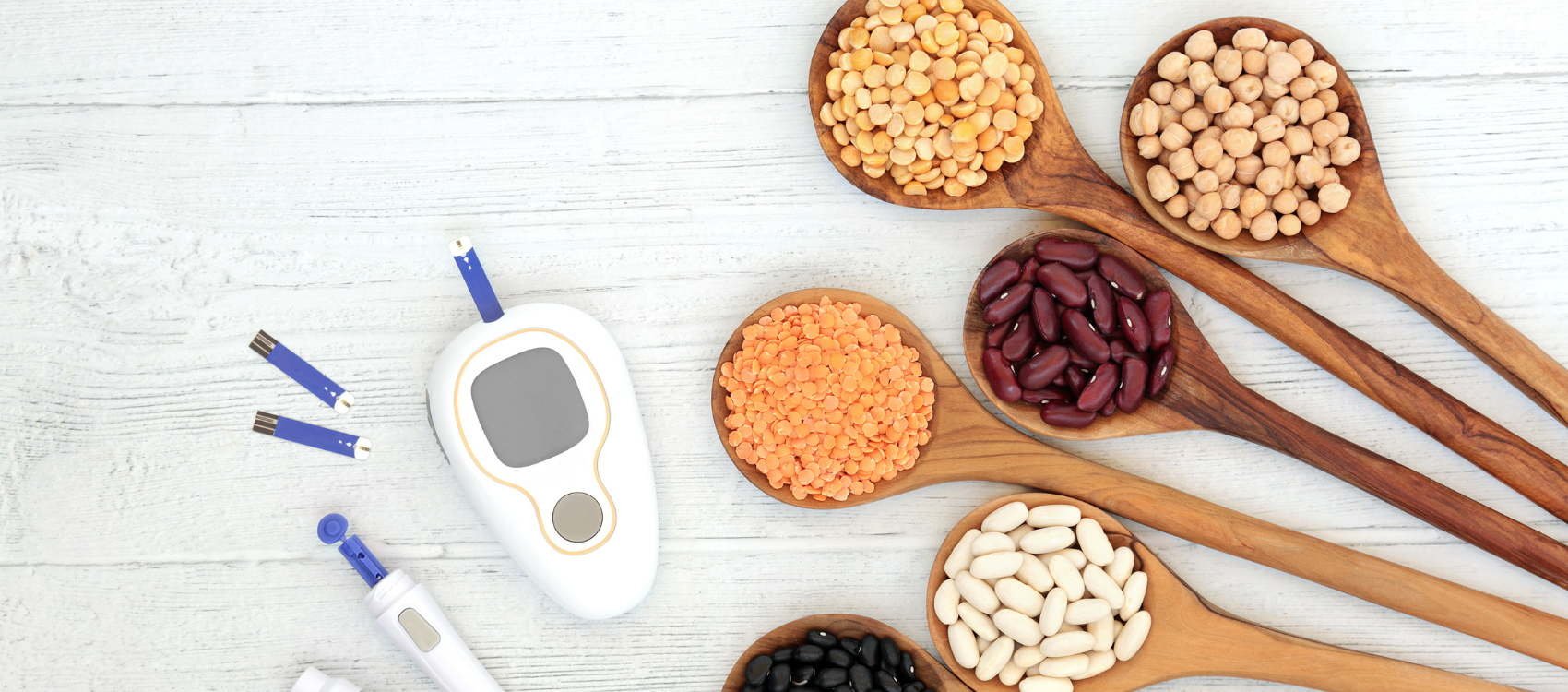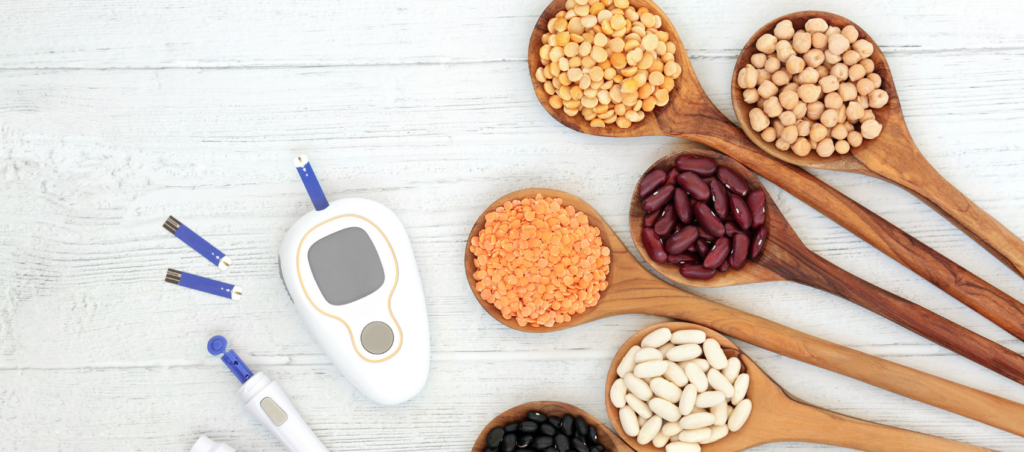
how many carbs should type 2 diabetics eat daily? Most of the carbohydrates in our diet come from plants. These food sources contain fiber and have little or no fat, so that they can help lower blood glucose levels. The American Diabetes Association (ADA) recommends consuming 55 to 75 grams of fiber daily for people with diabetes.30 This amount fits within a daily carbohydrate limit of 25 to 35 grams.
Type 2 diabetes is a debilitating disease, and it's important to take the right steps when living with it. One of the most common questions asked is, "How many carbs should type 2 diabetics eat daily?" Luckily, we have all the answers you need.
It's no surprise that people often wonder how many carbohydrates, or foods rich in carbohydrates — for example, bread and grains — are too many for someone who has been diagnosed with type 2 diabetes.
What is type 2 diabetes?
Type 2 diabetes is a chronic disease characterized by high blood sugar. The American Diabetes Association (ADA) defines it as "a metabolic disorder in which the body doesn't produce or use insulin properly and has high blood sugar levels."
The cause of this disease can be many, but it cannot be understated. For starters, the human body produces insulin, but people with type 2 diabetes do not make enough insulin or secrete it correctly. They must therefore take a prescription medication to replace it.
New research has shown that consuming dairy products and red wine can raise blood sugar levels and possibly contribute to developing type 2 diabetes.
Causes of Type 2 Diabetes
- Genetics
- Obesity
- High-fat diet
- Poor food choices (processed foods)
- Lack of exercise
According to the Centers for Disease Control and Prevention (CDC), almost 24 million people in the U.S. have diabetes — many of which are undiagnosed.8 The CDC also states that approximately one in every three children born in the U.S. can be expected to develop diabetes in their lifetime.
How carbs affect diabetes
Carbs are the main energy source for cells in the body — yes, even for diabetics. Some carbs are better than others, and one of the main benefits of carbohydrates is that they produce a feeling of fullness in your body.
All foods are broken down into glucose in the digestive system. Ultimately, glucose is used by cells to make energy. If you eat more than you need, your body stores any extra fat. Not only do people with diabetes have difficulty processing carbohydrates due to the lack of insulin (and/or poor insulin action), but excess carbs can also be converted into fat if they're not burned immediately by being used as energy.
The problem with type 2 diabetics can be summed up in one statement: They have trouble metabolizing carbs.
What are carbs?
Carbohydrates — such as bread, pasta, rice, and grains — consist of simple sugars such as glucose and fructose. Glucose is the body's main source of energy. Fructose is also sugar but is not generally considered a carbohydrate because it doesn't cause a spike in blood sugar levels. Fructose can be found in fruit, honey, and high-fructose corn syrup (HFCS).
Portion size
It's important to understand that when you eat carbohydrates, they are broken down into glucose (which the body uses for energy) immediately after consumption.
Portion size is key when it comes to carbs, especially for diabetics.10 For example, if you have diabetes and follow a 1,000-calorie diet (without exercise), the most carbs you should consume in one meal is about 130 grams or 10 to 12 servings of carbohydrates. This includes starchy carbs, such as bread and pasta, and non-starchy carbs, such as fruit.
The same applies to snacks. If you're on a 1,200-calorie diet, your most carbohydrate-dense snack would be about 70 grams of carbohydrates — or five servings of carbohydrates.
Foods that raise blood glucose levels
Avoid starchy carbs like bread, pasta, and rice if you have type 2 diabetes. High-fiber foods may increase your blood sugar level over time by releasing sugar in your bloodstream, which could lead to long-term complications.
Remember that you should also avoid or reduce your consumption of processed snack foods. Processed snack foods — such as crackers and chips — are often high in fat content, raising blood sugar levels even more.
Recommended daily carb intake
Type 2 diabetics who take insulin should follow the following recommendations:
• 1,500 to 2,000 calories per day (more if you have diabetes and exercise)
• 100 grams of carbs per meal (a slice of bread counts as 2 grams)
• 30 grams of carbs per snack (5 servings in total)
• 20 grams of carbs for each meal with a high-fiber food that is lower in sugar content. If carbohydrate intake is too low, this can cause hypoglycemia — a condition that occurs when the blood sugar level is too low.
Foods that lower blood sugar
According to research, there's a growing body of evidence that points to the beneficial effects of adding specific foods to your diet — especially those low in carbohydrates and high in protein — for people with type 2 diabetes.
Low-carb, high-protein foods include fish, lean poultry (no skin or dark meat), eggs and egg whites, low-fat or non-fat cheese (such as cottage cheese), nuts, seeds, and avocados. These foods are also good for heart health. For example, a study published in the American Journal of Clinical Nutrition suggests that people with type 2 diabetes who follow a low-carb diet that's very high in plant proteins have lower blood sugar levels than people who follow a low-glycemic diet.
Foods that reduce insulin levels
In addition to low-carb foods, you should also reduce your intake of high-glycemic foods, such as pasta and potatoes. Here are two examples:
• Eat more protein than carbs. Eating foods higher in protein than carbs lowers blood glucose levels and improves the sensitivity of your body's cells to insulin for the rest of the day (by increasing those fibers that slow down glucose absorption). This helps blood sugar levels remain stable and reach their optimal level throughout the day. While eating a lot of protein may make you feel full, it's important to balance this feeling with eating in moderation.
• Eat more carbs compared to protein. When you have diabetes, your cells become less sensitive to insulin. This condition can lead to diabetic complications and long-term health problems. Experts believe this is due, in part, to the fact that excess protein causes blood sugar levels to increase due to increased insulin resistance, which can overwhelm the body's insulin response mechanism (the pancreas producing and secreting up enough insulin). Consuming more carbohydrates than protein helps maintain stable blood sugar levels throughout the day by keeping glucose levels low.
Optimizing the effectiveness of insulin
There's a growing body of scientific evidence that suggests your diet can have a direct impact on how effective your insulin is at lowering blood sugar levels. The higher your dietary fat intake, the more insulin you need to combat it. This could be due to fat cell signaling that disrupts insulin response mechanisms in the body, which leads to adverse health effects like type 2 diabetes and insulin resistance. In contrast, consuming high-fiber foods reduces the risk of developing type 2 diabetes.
Another factor that can reduce the effectiveness of insulin is eating too much protein. Experts believe this is because high-protein foods cause your blood glucose levels to rise, which increases your need for insulin.
Fat cells, carbs and diabetes diet plan: The bottom line
Eating a diet rich in fiber, low in carbohydrates, and with moderate amounts of protein may help improve many aspects of diabetes management — not just blood sugar levels but also insulin resistance. What's more, many experts believe that following this type of diet could even help prevent type 2 diabetes from developing in the first place. Incorporate these types of foods into your daily meals to see optimal results.
In conclusion
the idea that certain foods are "good" or "bad" for your health is a matter of personal preferences and beliefs. Nowadays, most people understand that it's what you eat and how much you eat that determines how healthy you are — not what components the food contains. If you have type 2 diabetes, following a diet low in carbohydrates and high in fiber can help improve many aspects of your health. However, if you're only following one type of diet plan, it's important to consult with your healthcare team to make sure you're receiving all the necessary treatment for your condition.

